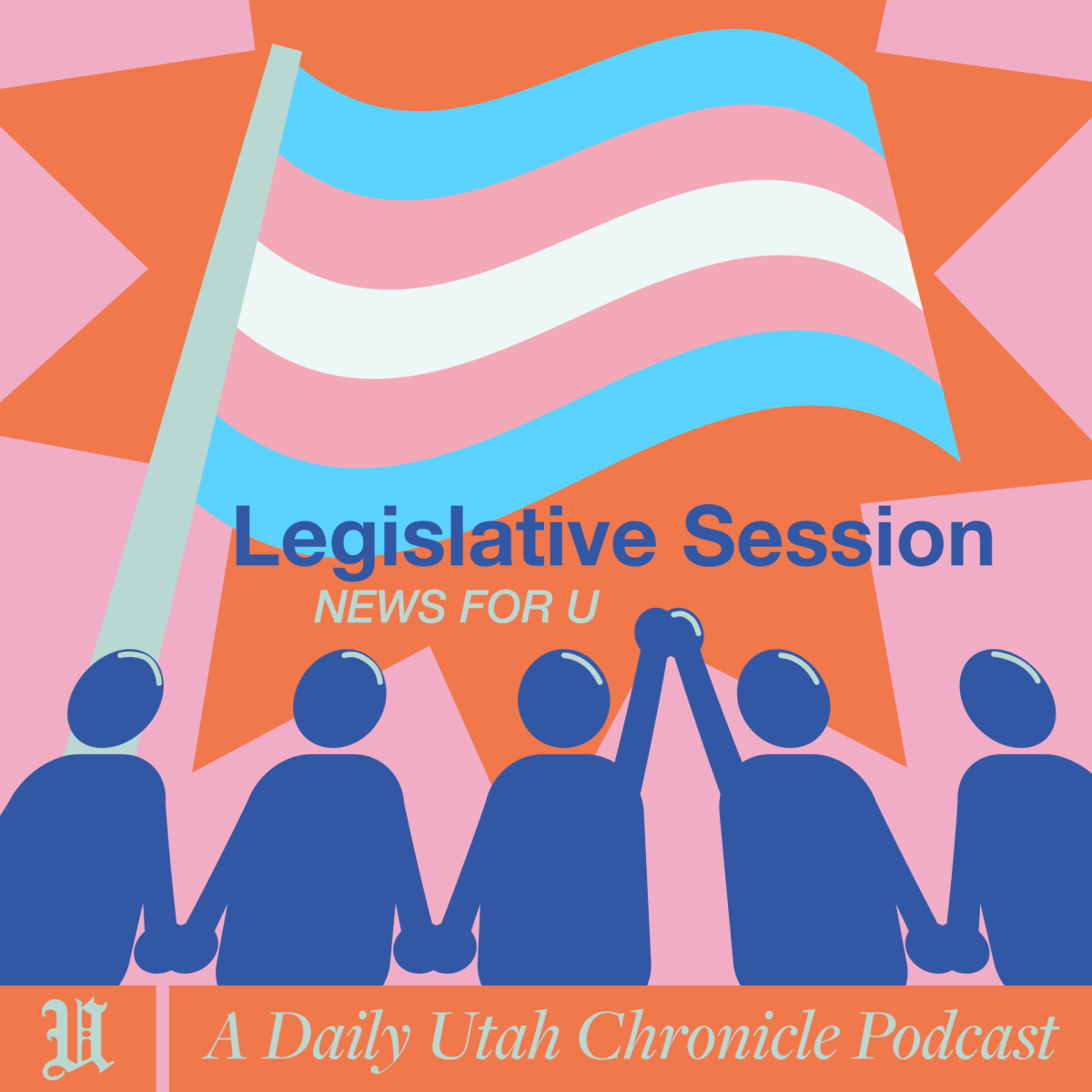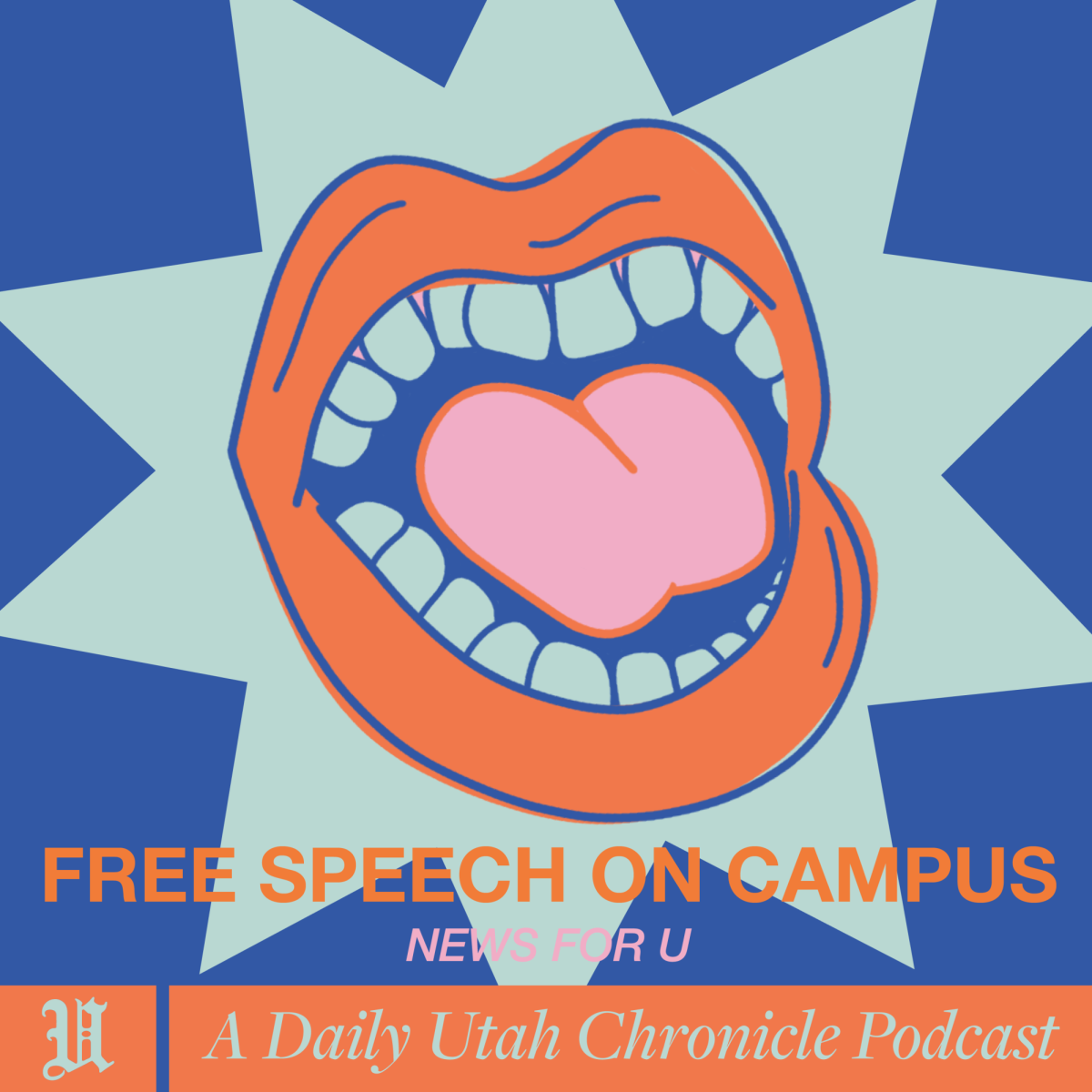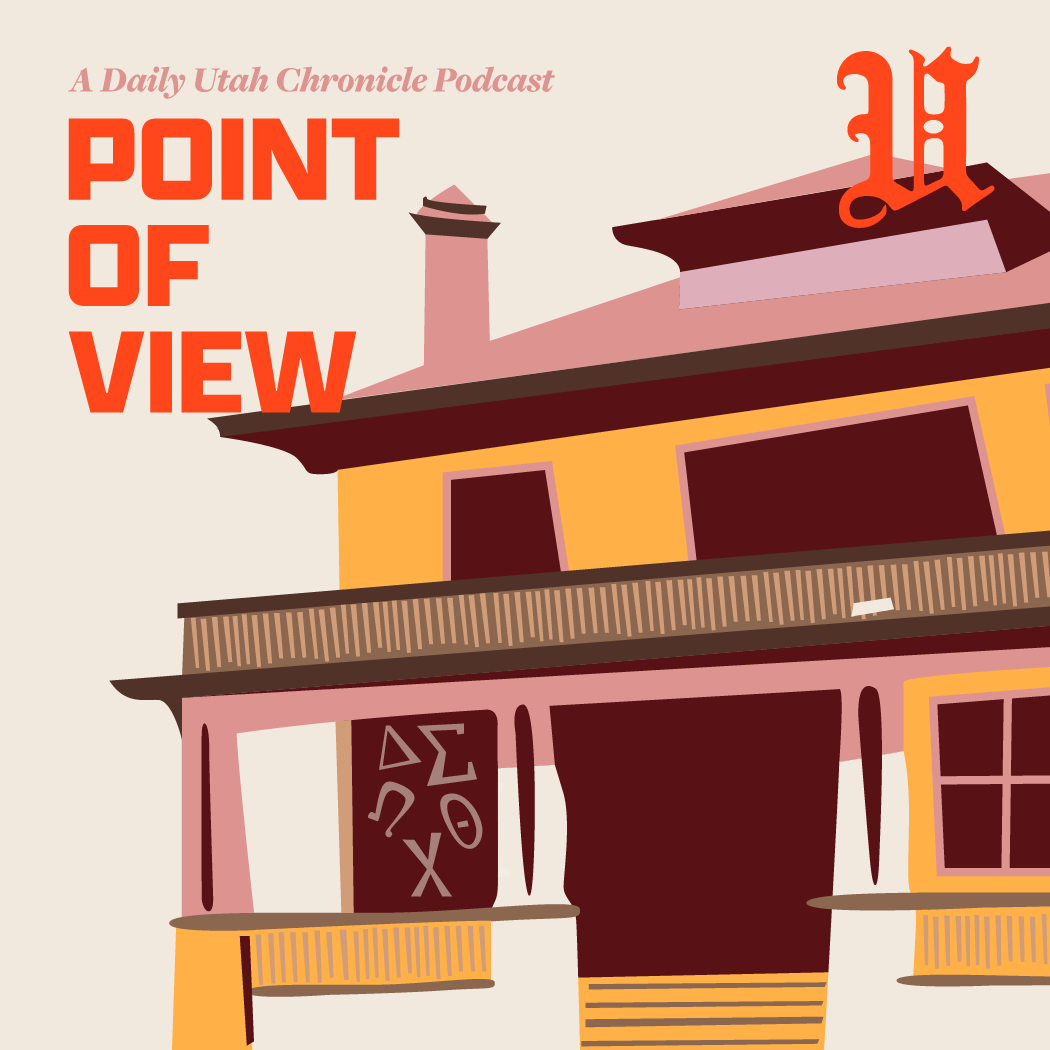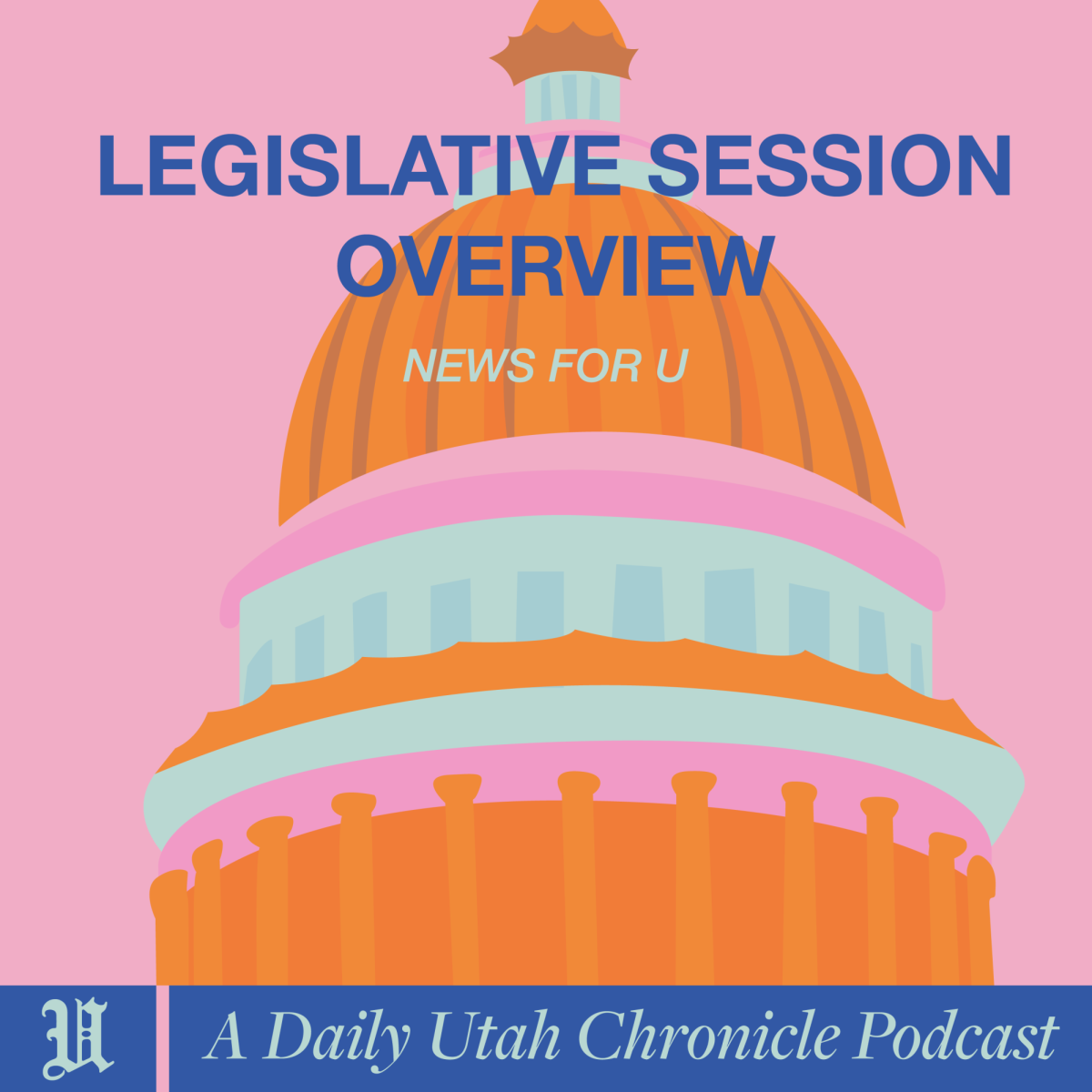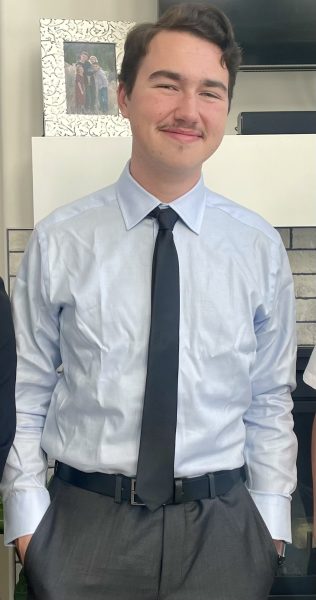Emma Ratkovic: Hello and welcome back to News For U. I’m your host Emma Ratkovic joined by our producers Graham Jones and Eugene Lyons. On this episode of the podcast, we are going to look over a few of the important bills that were passed during the 2024 Utah State Legislative session, which ended on March 1. News Writer Libbey Hanson has joined us today to discuss these bills and the effects that they will have on Utah. Hi, Libbey, thank you for joining us again on the podcast today.
Libbey Hanson: Of course. Thanks for asking me back.
Emma Ratkovic: All right. And before we jump into the specifics of the bills, can you explain the significance of this year’s legislative session in comparison to previous years?
Libbey Hanson: This year’s session has seen a historic amount of bills passed, there were 591 to be exact in comparison to the 5[7]5 of the 2023 session. And this year session continued to further legislation on environmental efforts, higher education, human interests, to the extent that some have said this session was worse in it’s content than last year’s.
Emma Ratkovic 1:18
What is the process these passed bills go through before they are signed into law by Governor Cox?
Libbey Hanson 1:24
So the bill starts in either the Senate or the House. So that’s why we have SB for Senate bill or house bill being HB. And the Senate, or the house reviews the bill. And they can ask questions, and they can make amendments on that bill. And this bill is then passed back and forth from the House and the Senate until all amendments are either agreed upon or not agreed upon. And then once the bill is passed by both and all the amendments are signed off, it eventually goes to the governor to either be signed or vetoed.
Emma Ratkovic 2:05
And as of today, March 24, how many of the passed bills have been signed into law by Cox?
Libbey Hanson 2:12
So as of the 22nd of March, 555 have been signed into law, and seven have been vetoed.
Emma Ratkovic 2:21
So looking over all the bills that were signed, are there any overarching themes or issues that are being addressed in them?
Libbey Hanson 2:29
Yeah, so there are topics that are important to many Utahns, including the improvement of the condition of the Great Salt Lake. So within this year’s legislation, we have seen efforts to further crack down on industrial water usage. And then there are also many other bills impacting higher education, many of which seem to involve pornography in the classroom. This has been an overarching theme within some of the education bills. And then of course, we’ve seen some bills on book banning, and then of course, the anti DEI bill and the anti trans bill as well.
Emma Ratkovic: And now taking a closer look at some of these bills. What is HB 438 and why has Governor Cox signed it into law?
Libbey Hanson: Yeah, this is a really interesting bill that I’m still trying to get a better hold of myself, essentially, HB 438 allows university presidents the authority to review professors tenure-ship, if that’s a word or their tenure, to determine if they’re being effective in their role. So tenure is something that is awarded to professors after I believe six to 10 years teaching and researching within their field. And having tenure essentially means job security. So this is a really interesting case in where that job security that professors have had to had to really fight for it takes a lot of research, it takes a board to decide if they’re eligible. Essentially, this bill is granting the University President’s ability to take that away.
Emma Ratkovic: And do you believe we will see the effects of this bill on the U’s campus and if so how and when?
Libbey Hanson: I think we’ll likely see this go into play on campus within the coming semesters. However, I imagine it to be kind of a quiet process, something that kind of goes on behind the scenes as the president is reviewing certain professors that have tenure or up for tenure. However, since this bill is so new, it’s difficult to say what the process will be or what it will look like. However, I do encourage our readers to keep an eye out. This is one of the bills that I do intend to do more research on and talk to university administration to see exactly what this will look like moving on in the future.
Emma Ratkovic: And the next bill we’ll look at is HB 19. What is this bill and how will it affect Utah residents and more specifically Utah students?
Libbey Hanson: Yeah. So this bill affects students who are National Guard members, and basically extends their funding that they receive from the National Guard to cover additional fees for their education. So essentially, this bill is extending what National Guard funding can cover for members, which is great news for those students who are members of the National Guard.
Emma Ratkovic: And what is HB 202 and why has it been signed?
Libbey Hanson: HB 202 protects the identity and statistics of student athletes for protection of third party endorsements totaling more than $600. So this term, it’s called NIL, which stands for name, image and likeness. And essentially, it’s their name, image or likeness that can get them endorsements. So essentially, this bill is going to be protecting student athletes from their name, image and likeness from affecting them, and essentially getting them more endorsements and keeping the field more equitable. We saw this coming up, when in this past year, football players were given RAM trucks from the Crimson collective. And as I said earlier, this bill is just going to protect student athletes from third party endorsements and making the field more equitable among all of the student players.
Emma Ratkovic: And will students who aren’t athletes, but enjoy watching and participating in college sports see the effects of this bill?
Libbey Hanson: You know, I’m not an expert in sports so I can’t say exactly how this will affect, you know, sports viewers. But I don’t think that students will see this bill go into effect. I think the ongoing of this bill have been more of the back end of things and not always apparent to the public. I think players who were benefiting from NIL will see the effects and who’s to say whether that affects their playing or not, but hopefully it won’t. So this one’s a little bit more difficult for me to answer, but I don’t think that students will necessarily see this bill going into effect too much.
Emma Ratkovic: And moving on to another bill. What is HB 332 and why did Cox sign it?
Libbey Hanson: Yeah, so this bill is an attempt to improve campus safety. Basically, the U and other institutions in the state will need to report campus safety plans, identify resources for safety training curriculum, and report annually on the implementation of the plans, as well as crime statistics to the education interim committee, and the Law Enforcement and Criminal Justice interim committee.
Emma Ratkovic: And do you believe the signing of this bill will bring any changes to the U and create a safer campus?
Libbey Hanson: I think if this were to create a safer campus, we will see the effects later in the future. This does see more of a preventative way to address gaps in safety that are currently there on campus. So in the future, I hope this effort will create a safer campus. However, it is difficult to say until this is implemented and reported on.
Emma Ratkovic: And we already discussed HB 261 and HB 257 in episode six of this season, but I was wondering if there have been any changes or updates to these bills since we last spoke on them?
Libbey Hanson: No, I have not seen any changes with this bill, when with either of these bills. And I don’t anticipate any changes until the next legislative session when they can be reviewed again for any amendment. I think we’re kind of in the trial scene of both of these bills of just seeing how they go. And then they can make any amendments later on in the coming sessions.
Emma Ratkovic: Have the effects of these bills already begun to show in anyway?
Libbey Hanson: So that’s a good question. I’m currently keeping an eye out on campus for any changes that I’ve noticed going on or any that people in my circle have. Right now. I think that these changes are moving pretty slow. We can see this when Utah Valley University renamed its DEI office to the Office of Institutional Engagement and Effectiveness in early March. However, this is really the only case that I have come across that has changed their policies in regard to these bills. But I think within the coming months, we’ll see more examples of these cases.
Emma Ratkovic: And what is HB 29 and why has it been considered as controversial?
Libbey Hanson: So HB 29 is a banned book bill. And this bill bans books that are porn like that are deemed pornographic or indecent for K through 12 education. And the bill is controversial because it allows school districts the power to ban books for the entire state. So essentially, if three school districts decide to ban a specific book, it is automatically banned throughout the whole state. Unless that specific county board can meet in time to veto the ban. Book banning itself is controversial because it is blocking access to information that students can willingly look for. And for example, if a student is struggling with their sexuality, they might find comfort in certain stories that relate to them. And if this book is being determined as inappropriate for students, they’re losing that access for any validity to their situation or any comfort in their struggle.
Emma Ratkovic: And how will those impact Utah schools? And will it have any effect on the U?
Libbey Hanson: This is difficult to say, because I’m not sure which books will be banned and what their content will be. However, you know, it could affect the content that K through 12 students study and are exposed to, and that could set them back for their studies at the U because of lack of exposure to certain literature, or even critical thinking concepts within these banned books. So it’ll be interesting to see how this bill plays out in K through 12. And then how this affects higher education. It’s difficult to say at this point.
Emma Ratkovic: And what is HB 417 and how does it relate to HB 29?
Libbey Hanson: Yeah, so HB 417 allows private legal action against the teaching of banned books. Originally, this bill was proposing that teachers the actual educators teaching the banned book would be charged with a misdemeanor, from I believe the state. However, it turns out that charging teachers with misdemeanors is not a popular concept in Utah. And so the bill kind of pivoted to allowing private legal action. So if parents want to, if they want to take legal action against the teaching of a certain book to their student, they can take that action however, it won’t automatically charge the teacher with a misdemeanor.
Emma Ratkovic: And why do you believe Governor Cox sign these two bills [HB 417 was not passed]?
Libbey Hanson: I mean, over the past couple years, we’ve seen the book banning is incredibly high on the Republican agenda to avoid exposing children to adult topics. And also LGBTQ plus and quote “woke topics” one could argue. And so I think that Governor Cox is experiencing pressure from a supermajority legislative of Republicans and could have felt obligated to sign these into law. However, you know, he may also agree with the agendas of the bill. But I definitely think that there was pressure coming from the Republican Party to sign these.
Emma Ratkovic: Lastly, what is HB 453 and how will it affect Utah’s environment and economy?
Libbey Hanson: So 453 is on water usage restrictions. And essentially, this is going to start holding companies and industries accountable to the water usage that they use in their projects, similarly to how us residents have water usage restrictions, especially in the summer. And so I mean, we could see an instance where this could delay any industrial actions or projects. And that could affect the economy, however, in turn, will also avoid any extreme high water usage, which will essentially hopefully keep our air cleaner and our lake healthier. In relation to how it will affect the economy. I think because this concept is so new. It’s difficult to say, I think it could slow down certain projects, but I don’t know if it will affect the economy in a super negative way.
Emma Ratkovic: Has Cox signed any more bills into law that you feel are worth mentioning here on the pod?
Libbey Hanson: Yeah, there was one more bill that kind of snuck through as HB 257 and 261 were being passed, those were being the anti DEI and the transgender bathroom bills. And this one is SB 57. And it’s called the Utah Sovereignty Act, which, like I said, I think it snuck through, and it’s a pretty impactful bill that I think Utahns should be aware of, essentially this bill is is allowing Utah more sovereignty as a state and centrally grants the legislature the ability to overturn any federal law or policy. If approved by both the House and the Senate, the majority of the two, this can, for example, affect any EPA bills like the I believe it’s the Good Neighbor Bill, where this essentially helps to clean the air for our neighboring states as well as our own state. There’s question to how this affects like the Civil Rights Act. I have a lot of questions about this bill. And the intention behind it of you know, why Utah needs such sovereignty and what the intention is or which federal policies and bills they want to override. So I think that this is something for Utahns to keep an eye on and it, it could be pretty concerning in the future.
Emma Ratkovic: And what has been the overall reaction to the bills passed and signed in this year’s legislative session?
Libbey Hanson: So many responses that I have heard have been feelings of, of heaviness. Many feel that these bills passed, have further oppressed them, and feel that this session took a major toll on their mental health, just especially with the anti DEI, the transgender bathroom, even like the banned books. And then I’ve talked to others that feel thrilled with the amount of legislation that was able to be passed within 45 days. However, I think that we even saw this coming from Governor Cox, he said that he is concerned with the session, becoming an event of more quantity rather than quality, especially considering the 591 bills that were passed. I think that I have that same reaction of I’m just concerned about the quality of these bills passing and maybe if there’s an agenda to just get as many agendas passed as possible. So we will see how this view, especially from Governor Cox affects the next session and how many bills are introduced and passed and signed into law.
Emma Ratkovic: With the patterns in the bills passed this year and the upcoming presidential election, what issues do you believe will be addressed in the next legislative session?
Libbey Hanson: I think that we’re going to see some more human interest-related issues for sure. I think that we’ll likely see maybe some bills on abortion related issues, especially with SB 57, the Utah Sovereignty Act, we could see some bills that yeah, that are related to abortion, I think that we will see some more transgender-related and diversity, equity and inclusion. However, I also think that we may see some more positive legislation come out for the environment, especially relating to Salt Lake. I hope that we do. So I think that the themes that we saw in this 2024 legislative session, I think we’ll just continue on to the next year.
Emma Ratkovic: All right. Do you have any final thoughts or comments, Libbey?
Libbey Hanson: I don’t. I think that your questions did a great job of giving an overall theme of the session.
Emma Ratkovic: Awesome. Well, thank you so much for joining us on the podcast today, Libbey.
Libbey Hanson: Of course. Yeah. It was great to be back.
Emma Ratkovic: And I’m your host Emma Ratkovic, and thank you for tuning in to this episode of News For U. Stay tuned for weekly episodes.
Producer: Graham Jones — [email protected] | @grahamcool8
Producer: Eugene Lyons — [email protected] // @linkjayman
Host: Emma Ratkovic — [email protected] | @eratkovic_news
Guest: Libbey Hanson — [email protected] | @LibbeyHNews








